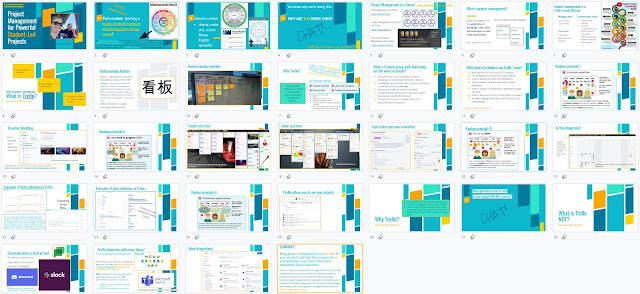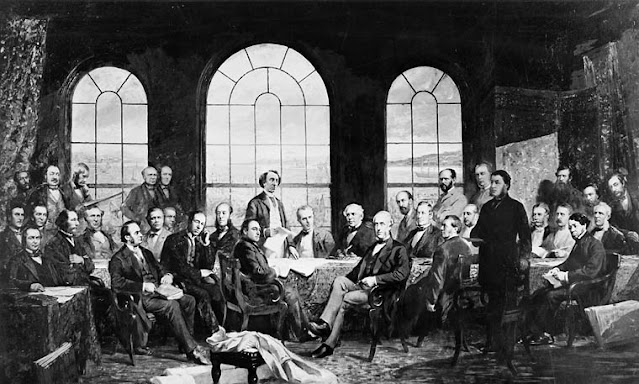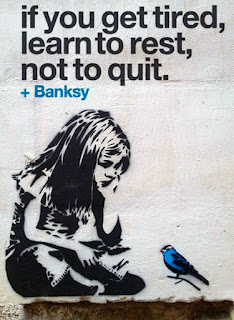A smart friend this past summer described last year as being a lobster in a pot as the temperature was slowly turned up to boiling. It’s a good metaphor – I didn’t realize I was in the boiling water until it was too late. This year I’m making a conscious attempt to understand my circumstances so I don’t end up in that boiling pot again…
***
Last year’s last minute emergency schedule was a mess. With little central planning or leadership from the Ministry, school boards had to cobble together a pandemic compliant quadmestered schedule and the end result made for radically inequitable work expectations. For some it was an easy year of half-day instruction with afternoons at home. I wasn’t so lucky, teaching over twice the face to face instructional hours of some colleagues while also simultaneously having to cover twice the online instruction because my school couldn’t provide qualified support.
I ended up throwing myself into the gaps in that cobbled together schedule last year to the point where I hurt myself and my family. That isn’t happening this year. Alanna had a colleague who said, “this year my extracurriculars are going to be me!” in reference to being run into the ground in order to keep our politically sabotaged public education system running. That sense of self-care is prevalent in a lot of teachers I follow:
What was most difficult last year (other than the constant switches to fully remote learning because safety precautions in schools obviously weren’t working) was trying to teach a 110 hour course in 52.5 hours of instructional time. The expectation that students would work on the other half of the course remotely was more of a daydream than a reality, especially in my case where I never once had a face to face relief or online instructor qualified in or with any experience in my subject area. This had me producing 5 hours of daily instruction while simultaneously trying to cover face to face and remote student needs. My principal has moved mountains this year to resolve that inequity and I intend to lean on that support.
Teaching in class is the tip of the iceberg when it comes to this gig. Prepping for class is a big part of the workload and then assessing and marking student efforts is on the backend, so when I’m buried in instructional hours I’m also buried in additional prep and marking. In a typical school year I’m responsible for three seventy-five minute instructional periods. This means I’m teaching for 225 minutes (or just under four hours) per day. Because I teach technology, much of my prep involves preparing electronics, computers and software in our lab for students to use. Sometimes I can streamline this process (which is good because I also get on-calls where I covering another absent teacher’s class), but I typically spend about thirty minutes prepping for each instructional period. This gets me up to about 315 minutes of focused work each day (that’s just over five hours).
A five hour work day? Must be nice, right? Well, you’re forgetting the marking and you’re also forgetting that a teacher’s work day doesn’t end at me instructing my own classes. There are duties which can range from covering other absent teachers classes (this can be if they’re sick but also if they’re away coaching a team or taking a class on a field trip). There are also lunch duties and other extracurricular expectations that take up hours in the day. What the regular schedule allows for is teachers covering each other off and enabling a rich ecosystem of additional learning opportunities for students. There are very few teachers in my building who aren’t coaching teams, running committees ranging from graduation planning to career pathways and curriculum development, or managing school productions, clubs or other enrichment. With all that piled on your typical teacher is at school from 8am to 4pm and then working on it outside of time at school too.
The good news about this year’s adjusted schedule is that we’re no longer pretending that cohorted hybrid classes are sustainable or credible. Face to face instructional hours have been restored to something like normal but in order to do that our workplace (and our union) has demanded a radical increase in teacher productivity – during a pandemic where everyone is exhausted and more likely to be away ill themselves. In order to make this condensed schedule work the contract was scrutinized and every possible moment of instructional time possible was stuffed in. This timetable not only buries teachers under increased instructional workloads, it also thrusts students into marathon two-and-a-half-hour classes while removing any capacity for absenteeism or enrichment, which is contrary to what the Minister of Education said would happen in the summer.

We’re still quadmestered, though why we are is a bit confusing. The argument is that there is less mixing of students in a quadmestered schedule, but this is a shell game in terms of student mixing and it isn’t true for teachers at all. In a regular semester I’d be mixing with three classes of students every day. In our current system I’m face to face with two classes in quadmester one and three classes in quadmester two – so the solution is to put me in front of more students during a pandemic? And my union agrees? My dues are too busy being focused on provincial political careers for me to expect support, I guess.
In the case of students, they might only have two instead of three classes per semester but they are also being encouraged to leave at lunch because we don’t have the capacity to seat them all in class cohorts in the building, so any concept of cohorting students to reduce transmission evaporates at lunch time. Even if they stay in the school to eat they are doing it unmasked in large rooms full of other unmasked people. Even before they get to school, 80% of our students arrive on school buses with up to 37 students shoulder to shoulder on board. In that environment there is little adult oversight (the adult on the bus is driving the thing), so masking compliance will be minimal. If students aren’t being cohorted at all other than in their classrooms, why run quadmesters with onerous productivity demands for teachers and untenable (and pedagogically questionable) marathon two and a half hour classes for students?
Why we’re not back in a regular schedule is beyond me. It would reduce workloads for teachers, enable the promised extracurriculars and give students that sense of normalcy that everyone keeps saying is so important. With busing and unsupervised lunches off-site in the plan, we aren’t strictly cohorting students when they’re at school anyway. This incoherent and absurdist COVID theatre is what I’m finding most draining about the pandemic. We have absolute rules designed to protect everyone at all costs at certain times of the day and then do things that directly contradict them when we run out of capacity. You don’t dare contradict the rules unless you’re the one making them. And all this in a schedule designed to offer no overhead in terms of absenteeism or extracurricular capacity. That my union is silent on this is something I’m finding increasingly impossible to forgive.
When we first got our new schedule (last week, a week before school started because once again we were given no central direction or support from the provincial government – actually it was all just cuts this summer), I was immediately concerned about how this year had been pieced together. Our contract is based on a semestered system, so 225 minute instructional days are written in, but because this is written for semesters it doesn’t recognize the imbalances implicit in a quadmestered system. In my first quad I’m responsible for 2 x 2.5 hour classes – that’s four regular periods of prep and assessment or a 25% bump in my workload. They get around exceeding the contract’s time limits by dropping other teachers into my classes and giving me a 37.5 minute prep time in each 2.5 hour class period. When I finally get out of the always on quadmester I’m thrust into a coverage quadmester where I’m still having to prepare 2 x 75 minutes of instruction but I’m also expected to cover two other teacher’s classes so they can get prep time. I’m also supposed to cover unmasked students from many classes eating lunches. There is a limit to how many coverages I can do in our contract but to get around that they’ve decided that the coverages we’re doing aren’t going to be called coverages and don’t count as such. The words in our contract literally don’t mean anything any more and no language around quadmestering has been added even though we’re in our second year of them.
My preps are now cut to confetti and reduced to 37.5 minute blocks covered by another teacher. I also won’t have access to my classroom to prepare equipment because students are already in it with another teacher, so my physical prep will have to happen outside of school hours. My admin has done backflips to provide qualified support but we computer technology qualified teachers are thin on the ground. I’m working with a new teacher in my department but he hasn’t finished the senior qualifications for comp-tech yet so he’s not qualified to cover and my afternoon class has a business teacher covering, so despite best efforts I still don’t have qualified coverage. On top of that, the schedule is so tight that there is no travel time for covering teachers doing these extra duties (but we’re not going to call it extra duties and instead we’ll use quadmestering as a means of ramping up work expectations), so my prep times will never be 37.5 minutes anyway. When you stuff everything to capacity in a tight schedule leaks are inevitable, but don’t worry, teachers will just jump into the gaps again even after already being pressurized systemically.

This always on schedule means there is no time for extracurriculars, or sports, or field trips or anything other than always on teaching. And don’t get sick and be away… during a pandemic. I can’t help but think this schedule is built on the assumption that we’ll all be fully remote again. If that sounds impossible, do a bit of research on Delta Variant. “the Delta variant is more transmissible than the MERS, SARS, Ebola, the common cold, the seasonal flu, and smallpox viruses and is as contagious as chickenpox… 74% of infections with Delta took place during the pre-symptomatic phase, which means people spread the virus before knowing they are infected” We’re still doing daily screening even though Delta works around it because we’re still clinging to the systems we developed last year to fight an entirely different COVID19. More alarmingly, the provincial government has downgraded all masks for staff to level one ASTM and cut extra cleaning, so we’re not even fighting spread as well as we did last year – against a variant that spreads significantly more efficiently. Maybe overloading the schedule with the expectation of going remote (again, more than any other province in the country) is just the sort of cynicism we should all get used to. I don’t have time for cynicism as I’m more interested in not bringing home a pandemic to my medically compromised partner.
It was suggested to me that we can’t back out of quadmesters now because they align with the in-again out-again needs of elearning students who might want to move between courses presented remotely and face to face as it suits them. You can’t do that in a semestered system but cut the schedule to confetti and you can have people dropping in and out of elearning as you like. Sure, learning for everyone suffers, but quadmestering helps make mandatory elearning the new normal. I don’t know if this is true or not but it does align with the current government’s intention to force elearning on all students regardless of whether it suits them or not.

I only have sympathy for the people at the board level trying to make this work. It’s like trying to weather a storm on a boat with no captain. The sailors are doing the best they can with next to no direction and the ship has no one at the helm. We’re lost in rough seas and land it well out of sight. With no control of my work situation, I’m slogging away on the lower decks as water rushes in.
This year I’m not going to climb back into the pot without realizing that it is a pot and it’s being set to boil. For the sake of my own sanity and the well being of my family I have to take a step back and recognize that the only person who will save me is myself.
from Blogger https://ift.tt/3n2LTMr
via IFTTT
 I was involved in a VoicED podcast yesterday on how student privacy could be compromised as we rapidly migrate online in response to the pandemic: EP 06 – Special Pandemic Edition: Transforming Education Under Pressure | voicEd
I was involved in a VoicED podcast yesterday on how student privacy could be compromised as we rapidly migrate online in response to the pandemic: EP 06 – Special Pandemic Edition: Transforming Education Under Pressure | voicEd 



















